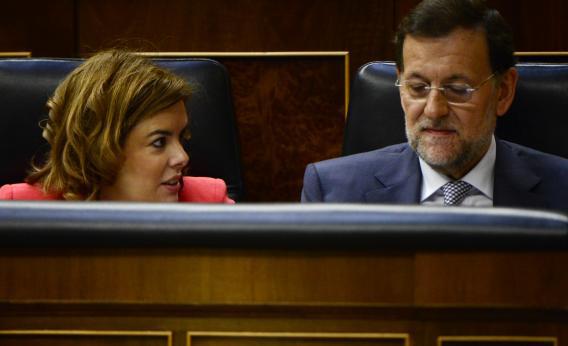Prime Minister Mariano Rajoy of Spain has come to the table with his latest plan to free up funds for the bailout of Spanish banks:
Rajoy, of the center-right People’s Party, proposed a 3-point hike in the main rate of Value Added Tax on goods and services to 21 percent, and outlined cuts in unemployment benefits and civil service pay and perks in a parliamentary speech interrupted by jeers and boos from the opposition.
For all the fancy chart wars around European austerity, I don’t see how anyone can seriously deny that this kind of action is going to further crimp Spain’s economy. In all modern advanced economies—including major exporters like Germany—the majority of employment is in local service provision. A big reduction in Spanish citizens’ purchasing power will devastate those sectors without doing much of anything to directly bolster net exports.
Interestingly Rajoy “did not touch pensions,” seemingly a similar dynamic to what you see in the United States where GOP zeal for budget cuts is combined with promising to never reduce spending on the currently elderly.
